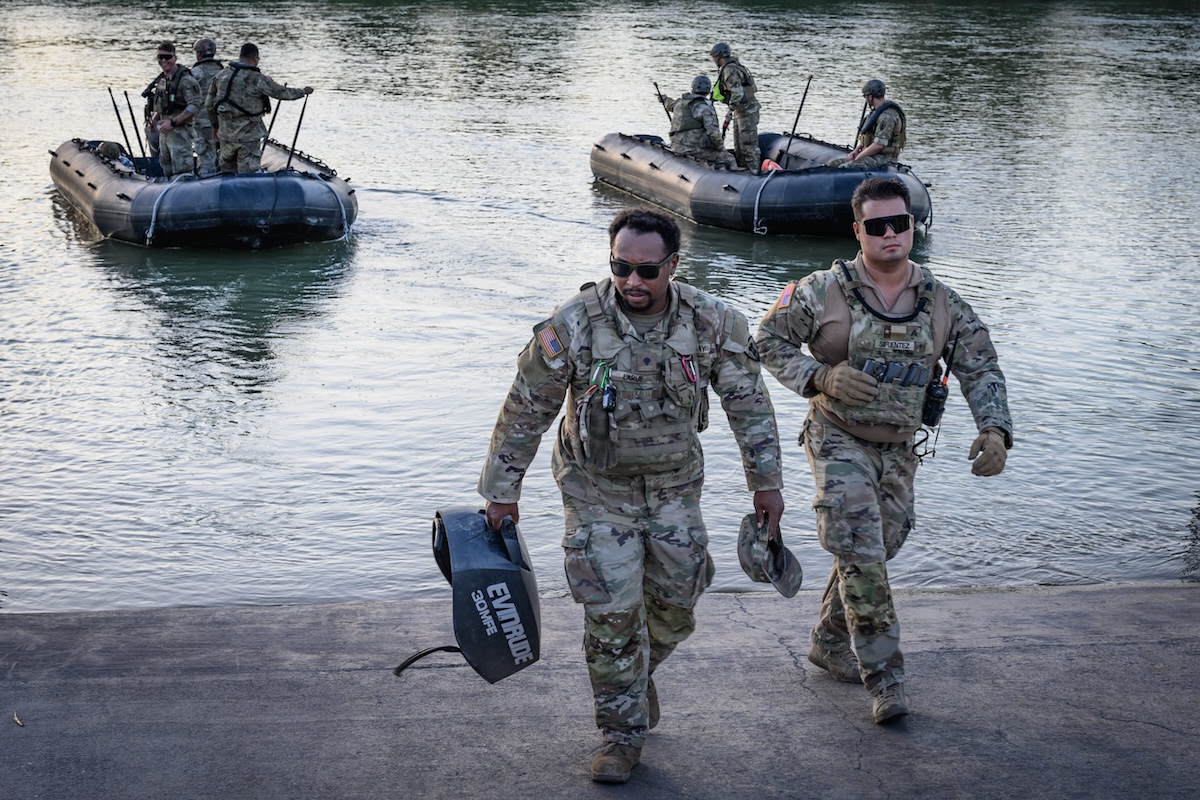By Guadalupe Correa-Cabrera | La Opinión
Under former Mexican President Andrés Manuel López Obrador, organized crime in Mexico visibly expanded its reach and influence in parts of the country. While Obrador’s Fourth Transformation (4T) agenda yielded some positives, there are now warning signs that are cause for concern, all the more so with Donald J. Trump set to return to the White House.
Trump’s promise of mass deportations and a war against Mexican cartels—including possible military action by US armed forces on Mexican territory—coincides with the control of large territories in Mexico by organized crime. This phenomenon threatens to complicate US-Mexico relations while causing even greater instability and violence in Mexico, at least in the short and medium term.
Indeed, Trump and his supporters will surely seek to take advantage of the very dynamics fueling criminal activities (such as extortion, human trafficking and drug trafficking, among others) as well as the high-profile confrontations between competing criminal groups in certain areas of Mexico to pressure the Mexican government in talks over US arms sales and resource extraction.
Criminal paramilitary groups, meanwhile, combined with the enormous corruption and impunity that reigns in large swaths of Mexico, and the protection that businessmen and law enforcement agencies at all levels provide to organized crime, represent a perfect storm for what appears to be in the offing starting January 20. The nomination of retired Colonel Ron Johnson as the new United States ambassador to Mexico, moreover, signals a more aggressive, militaristic approach to bi-lateral relations by the US.
In Mexico, given the delicate situation in some regions, there are even those who would welcome ceding Mexican sovereignty.
So it is that Mexico’s new president, Claudia Sheinbaum, will be obliged to deliver results in the face of Trump’s threats to impose tariffs, end the US/Mexico/Canada free trade agreement and deploy troops on to Mexican territory. A heavy-handed strategy can be expected, not unlike what we have seen in El Salvador. This strategy anticipates a period of extreme violence that will add to the current challenges, reversing Obrador’s “hugs, not bullets” approach to organized crime. Before the calm comes the storm. Before any hugs new shots will fired.
Anyone who has worked on the border or along the migratory routes that cross Mexico understands the delicate situation that many in Mexico face. Forced displacement is on the rise, while hotels or other such places that once catered to foreign visitors are now filled by Mexicans displaced by the violence and crime.
Forced recruitment by cartels and crime groups is fanning fear across parts of the country. Many people from states such as Chiapas, Guerrero, Michoacán, Jalisco, Sonora or Sinaloa can no longer live there. The United States has become a refuge sought by more and more Mexicans who today find themselves trapped between Trump’s future restrictive immigration policies and organized crime.
Those familiar with the immigration issue note that the entire border region—from west to east (on the Mexican side)—is controlled by organized crime, which charges a fee to anyone who tries to cross. Corruption, impunity and the inability of the Mexican authorities in recent times have generated an unsustainable situation that in the second Trump era will perhaps justify increased militarism.
Perhaps the greatest problems will be concentrated in the border region (on the Mexican side). Those displaced by violence seeking to reach the United States, deportees and the main groups dedicated to extortion and drug trafficking will face Trump’s aggression, increasing pressure on Sheinbaum’s government to adopt a more militaristic strategy.
The renewed security cooperation so sought by the United States within the framework of cross-border relations will perhaps begin to take shape again. The sale of weapons and equipment to the Mexican armed forces and the military training provided by the “good men” of the United States—overseen by Colonel Johnson—appear to be already underway. We are now entering a new era of shootings.
Dr. Guadalupe Correa-Cabrera is a professor at the Schar School of Politics and Government at George Mason University. This story was originally published in Spanish by La Opinión and is reprinted here with the author’s permission.




